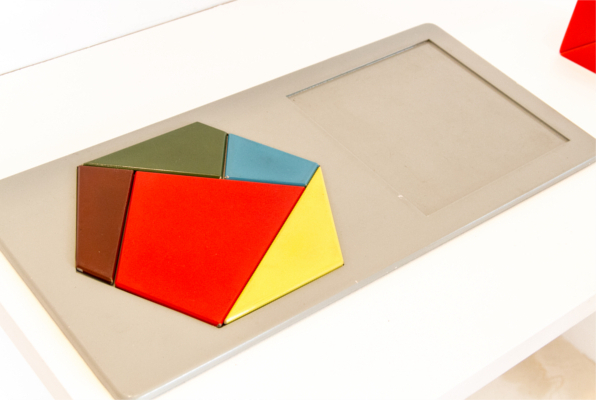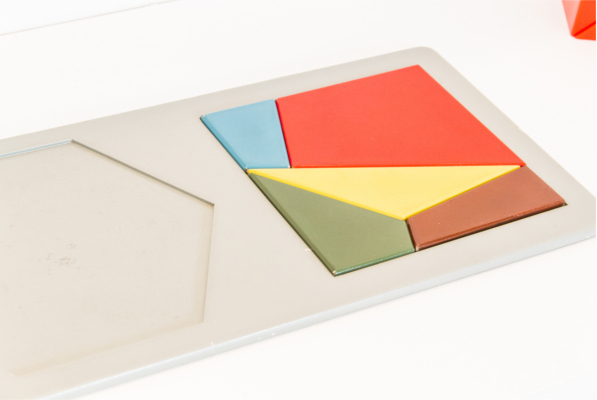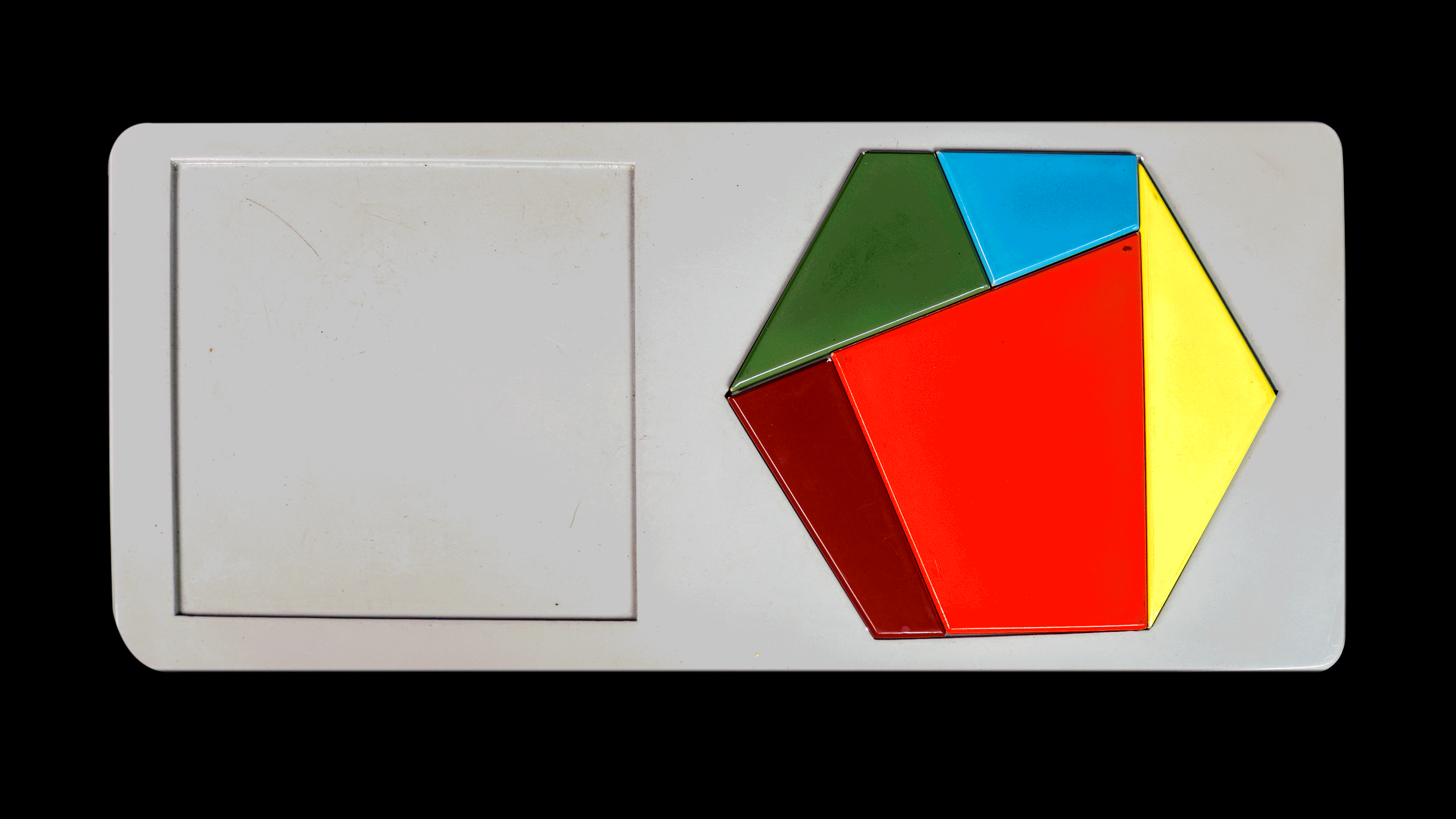EQUIDECOMPOSABILITY

Using the same pieces we can form a hexagon or a square!
Is it also possible to do this with a square and an equilateral triangle?
In fact, it can be shown that any two polygons of the same area are equidecomposable, that is, there is a partition into smaller polygons that is common to both. Finding the way to do this is another problem and can be quite difficult!


If we increase the dimension and think of the same problem for polyhedra, the answer will change. For example, a regular tetrahedron and a cube of the same volume are not equidecomposable. Who proved this was Max Dehn, in 1900, and it was the quickest answer to one of the problems of Hilbert's famous list, made in the same year.

